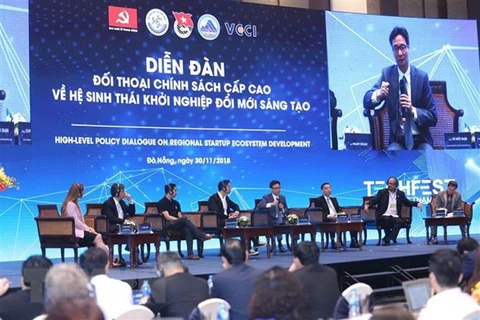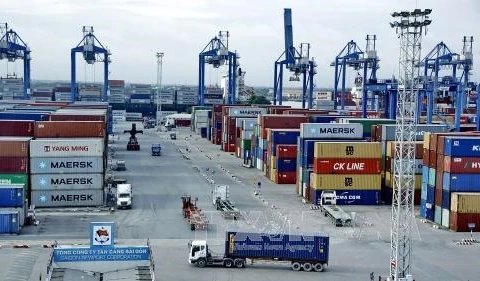HCM City (VNS/VNA) - In Ho Chi Minh City and the south-western region, individuals set up 75 percent of all start-ups and organisations established the rest, according to the Ministry of Science and Technology Office in the southern region.
The office’s chief Pham Xuan Da told a seminar in HCM City on December 11 that "the region has great economic potential".
"Many supporting activities to promote a start-up and innovation eco-system are being undertaken in HCM City and Can Tho and Tra Vinh and Ben Tre provinces," he said.
They focused on offering legal assistance, helping with business registration, registering intellectual property, and teaching them about finance and corporate governance, helping reduce the risk of failure, he said.
According to Huynh Kim Tuoc, managing director of the Saigon Innovation Hub (SiHub), the city’s start-ups and innovation eco-system are in four key industries: plastic, pharmaceutical chemicals and rubber; food processing; mechanical engineering; and electronics and telecommunication.
This eco-system supports efforts such as the use of technology in education, sectors like hi-tech agriculture, technologies used in food processing and biotechnology, medical technology, clean technology, AI (artificial intelligence), VR (virtual reality), AR (augmented reality), robotics, and smart systems.
Nguyen Thi Mai Huong, co-founder and managing partner entrepreneur of Empower Hub Vietnam (E3Hub), said "start-ups and innovation-driven enterprises are a key element in the country’s development strategy".
“They not only create more jobs but also diversify production and modernize the economic structure.”
The countries with the best conditions for dynamic entrepreneurs were the US, the Netherland, Singapore, and Finland, she said. “An agency is required to directly support Vietnamese start-ups.”
The Government should create favourable conditions for schools, colleges and universities to incubate and invest in start-ups, she said.
It should help start-up businesses develop human resources, build an entrepreneurial spirit and access international markets, she said.
"Improving the business environment, preferential policies and venture capital are required to develop start-ups and innovation eco-systems," she said.
"Easing administrative procedures for venture capital investment and creating smooth mechanisms for divesting capital are also needed."-VNS/VNA
The office’s chief Pham Xuan Da told a seminar in HCM City on December 11 that "the region has great economic potential".
"Many supporting activities to promote a start-up and innovation eco-system are being undertaken in HCM City and Can Tho and Tra Vinh and Ben Tre provinces," he said.
They focused on offering legal assistance, helping with business registration, registering intellectual property, and teaching them about finance and corporate governance, helping reduce the risk of failure, he said.
According to Huynh Kim Tuoc, managing director of the Saigon Innovation Hub (SiHub), the city’s start-ups and innovation eco-system are in four key industries: plastic, pharmaceutical chemicals and rubber; food processing; mechanical engineering; and electronics and telecommunication.
This eco-system supports efforts such as the use of technology in education, sectors like hi-tech agriculture, technologies used in food processing and biotechnology, medical technology, clean technology, AI (artificial intelligence), VR (virtual reality), AR (augmented reality), robotics, and smart systems.
Nguyen Thi Mai Huong, co-founder and managing partner entrepreneur of Empower Hub Vietnam (E3Hub), said "start-ups and innovation-driven enterprises are a key element in the country’s development strategy".
“They not only create more jobs but also diversify production and modernize the economic structure.”
The countries with the best conditions for dynamic entrepreneurs were the US, the Netherland, Singapore, and Finland, she said. “An agency is required to directly support Vietnamese start-ups.”
The Government should create favourable conditions for schools, colleges and universities to incubate and invest in start-ups, she said.
It should help start-up businesses develop human resources, build an entrepreneurial spirit and access international markets, she said.
"Improving the business environment, preferential policies and venture capital are required to develop start-ups and innovation eco-systems," she said.
"Easing administrative procedures for venture capital investment and creating smooth mechanisms for divesting capital are also needed."-VNS/VNA
VNA























